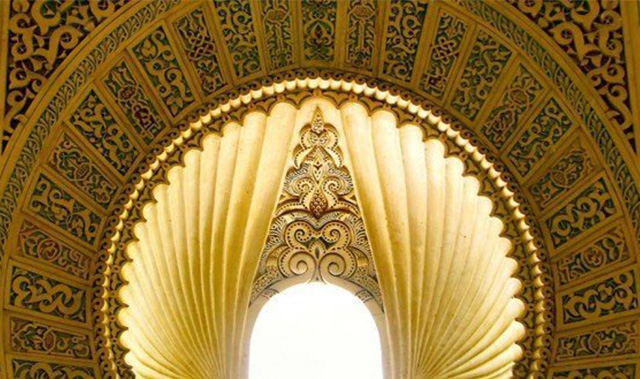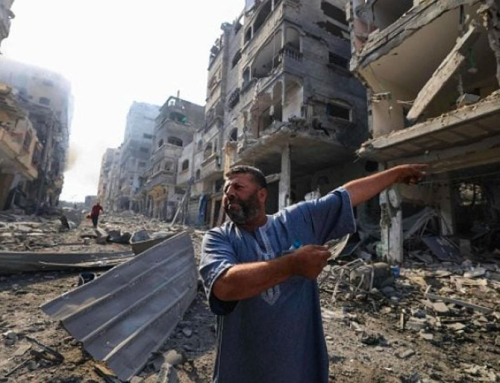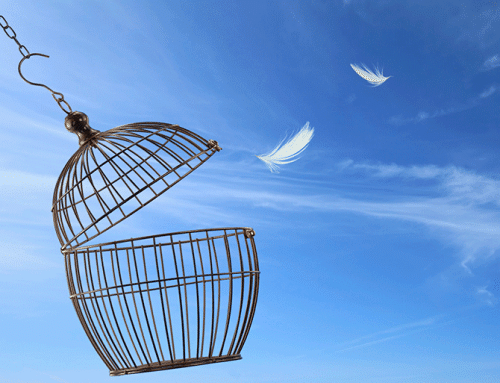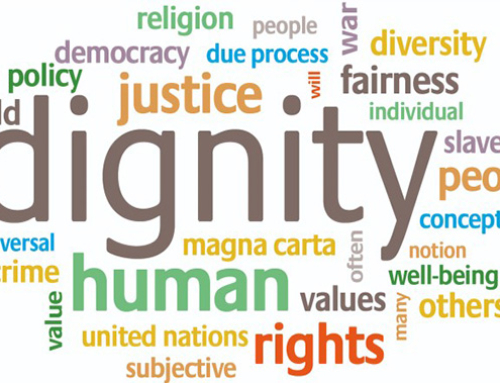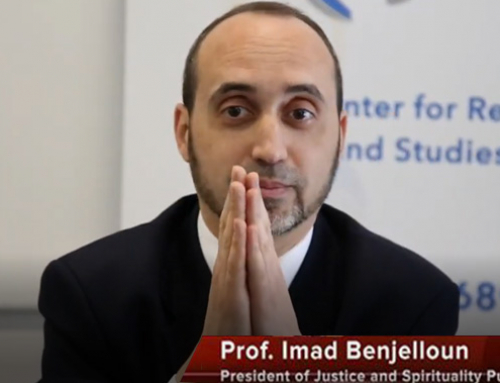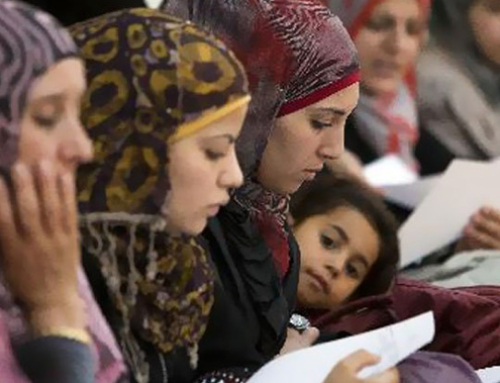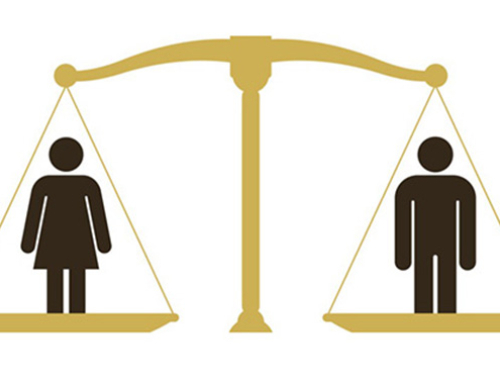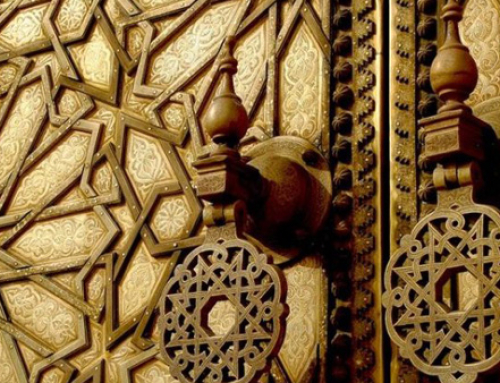Abdessalam Yassine
May 28, 2014
Excerpt from “Muslim Women: Journey into the Light V.2”
Translated from Arabic by Farouk Bouasse
The spiritual transcendence that gave the paragons of virtue, Lady Fāṭima and Imam ‹Alī, the strength to bear the hardships of life (she ground cereals until her hands swelled and blistered while he drew buckets of water from the well until he had a backache) is not within the reach of ordinary mortals. That was the Prophet’s household that had to be a distinguished model in the firmament of virtues. The believing women and men ought not to literally believe that the straw mat, the leather pillow stuffed with palm fibers, and extreme austerity are the secret behind those who have prospered in the Hereafter. If the heart is devoid of attachment to the Lord (Exalted is He), the equality of the man and the woman in hardship is no different than their equality in prosperity. Neither hardship nor prosperity in themselves bring about eternal bliss in the Hereafter.
The world is a divine trial. The burden of worldly trials is alleviated when the believing woman and man join forces to confront adversities and overcome obstacles by a fair distribution of their profits and losses, as well as by ihsān, affectionate assistance, love, and compassion. The woman supports the man and, in case of need, renounces some of her rights out of generosity. Similarly, the man recognizes her virtues and vies with her in ihsān. If the husband feels that his wife is a solid and reliable person and if the wife is assured that her companion in the journey towards the Hereafter is a loyal and trustworthy person, the foundational brick of the social edifice is well established. But more important than building a society is building the woman and the man’s future in the Hereafter. The building material of the Hereafter is righteous deeds. Some Islamist writers speak of the Islamic society, the Islamic state, Islamic justice, without speaking of my future and yours, my Hereafter and yours. The efforts I and others have exerted to spread the Islamic message and establish the Islamic state are of no interest to me except insofar as such efforts will be accepted by my Lord. On top of that, I hope that such righteous deeds will bring me closer to Him so that He grants me His love and resurrects me in the company of those He has favored – the Prophets, the Sincere, the Martyrs, and the Righteous.
This attachment to God and this perpetual doing of righteous deeds is ihsān in its spiritual dimension. Ihsān means to worship God as if you could see Him – as the Prophet (God bless him and grant him peace) has said. The Lord (Glorified is He) has commanded justice and ihsān. The first Islamic society was held together by justice and then ihsān. Īmān and the aspiration to the station of ihsān lifted the believing women and men away from the land of altercations and disputes over their rights. Ihsān then crowned justice. Thus, the wife was tolerant regarding the absence of some of her rights out of ihsān and the anticipation of God’s reward, while the husband strove to give her all her rights out of fear of Him and aspiration for His nearness. If justice balances two opposite scales on a human level, ihsān raises the husband and the wife to the heights. People are not equally disposed to ihsān. When they are involved with their family and their properties, worldly concerns soon bring them down from the summit of ihsān to the reality of daily disputations. The most fortunate among them are those who return, transcend, and seek out someone to remind them of God, just as Abū Bakr and Hanzala did. It is justice that holds the edifice of the Muslim family together. Yet justice alone is like a dry machine whose parts cause friction at every movement unless they are lubricated. The remedial oil in marital life after justice, prior to justice, and along with justice is ihsān.
There is a linguistic and technical meaning to ihsān of the heart. The first connotes benevolence, generosity, and affection. The second denotes perfectionism in every endeavor and labor. Perfectionism as far as intention is concerned so that God may accept it, for He accepts none but the works of the righteous. Perfectionism as far as execution is concerned so that individual acts of worship and collective acts of worship (the political, economic, and social jihād) have a propitious outcome. Ihsān in the sense of perfectionism ought to seek out the knowledge of God and His Law – otherwise, it will be just like the work of the unbelievers that is born and buried right here in this world.
The Lord (Exalted is He) gave the man, as husband and leader, a degree over the woman. He ordered the man to be just and practice ihsān, just as He ordered the woman to do likewise. The arbitrary man and the arbitrary woman stuck on the lower step of islām (1) have their evil deterred by justice. But if the relationship declines to the point where they need to constantly seek arbitration, then the edifice of the relationship has already been undermined.
In the bosom of Islam, the woman is honored and treated generously. She must be treated with ihsān. Man’s spiritual ihsān sheds on her gentleness and affection. On her side, she forbears and endures and rewards ihsān with ihsān. Only a man lacking murū›a (2) and having an imperfect dīn would treat the woman harshly. Thus, when the Messenger (God bless him and grant him peace) saw the camel-driver Anjasha hurrying along a caravan that was carrying a group of women, he said to him kindly: “Be careful with your [fragile] bottles.” When the woman is a child, Islamic Law protects and honors her in the lap of parental affection; as a wife, it commends the husband to take care of her; and even more so as a mother, it urges her sons and daughters to treat her reverently and kindly.
The birth of a female child in the pre-Islamic family was a disaster. The Messenger (God bless him and grant him peace) hence proclaimed that “Whoever has daughters and treats them with ihsān [that is, kindly and generously for God’s sake], they will be a protective cover for him against the Hellfire.” [Reported by al-Bukhārī and Muslim on the authority of the Mother of the Believers ‹Ā›isha (God be pleased with her).] As to taking responsibility for them, the Prophet was even more emphatic: “Whoever takes charge of two daughters [or: girls] until they come of age, he will be as close to me on Judgment Day as one finger is to another.” [Reported by Muslim on the authority of Anas (God be pleased with him), who added, “[The Prophet] then joined his fingers [to indicate this closeness].”] In another report, he said, “Whoever has three daughters or sisters, or two daughters or sisters, and treats them with ihsān, his reward will be Paradise.” [Reported by Abū Dāwūd and at-Tirmidhī on the authority of Abū Sa‹īd al-Khudrī (God be pleased with him).]
As for the woman as wife, the Lord gave men a special counsel: “And treat your wives with ma‹rūf [praiseworthy conduct]; for if you dislike them, it may well be that you dislike something which God might yet make a source of abundant good.” (4:19) In this verse, the word ma‹rūf, according to our eminent linguists, means any act that is regarded by reason or by Islamic Law as good and praiseworthy.
In the countries of freedom, women’s rights, and bestial egoism, when the woman becomes old and weak, she is thrown into the hospices for the elderly, along with the man: two ghosts that are cast in the last days of their life into a sort of concentration camp where they are left to slowly die. In a proper Muslim society in which justice is crowned with ihsān, Islamic Law hastens to rescue the mother and the father: “Should one of them [your parents], or both, attain old age in your life, never say ‘Uff’ to them or scold them, but [always] address them in terms of respect. And spread over them humbly the wings of your kindness, and say, ‘My Lord, have mercy on them even as they cherished me when I was a child!’” (17:23-24) Islamic Law distinguishes the mother in particular for the highest filial duty. When a man asked the noble Messenger (God bless him and grant him peace) which of all the people was best entitled to kind treatment and good companionship from him, he said, “Your mother.” The man asked, “Then who else?” “Your mother.” “Then who else?” “Your mother.” “Then who else?” “Then your father.” What a big difference between this counsel and the selfishness of our contemporary societies! Thank God, there is still in the Muslim countries a trace of the dīn that prevents sons and daughters – notably in the popular classes – from neglecting the rights of their parents. It is a basic virtue that is not to be underestimated.
In popular memory there is still an echo of the generous women who built mosques, schools, hospitals, and orphanages. That is ihsān in the sense of sympathy for the weak that you find in both the Muslim and non-Muslim woman. Similarly, you find in the Western NGOs signs of that murū›a that is shared by all humans, a murū›a and ihsān that we should all open our arms to so that we too may take part in giving, instead of forever receiving donations from others when Somalia is struck by famine or when Bangladesh is struck by floods. This natural disposition of the woman to this ihsān ought to be crowned in an Islamic society with ihsān in its spiritual dimension to fill the gaps of a state that lacks those human sentiments that ache with the wretched in times of crisis. This woman neighbor, that male relative, and those people in your vicinity deserve your best care and attention. You should know their names and homes and keep abreast of their problems and needs. For such missions, the believing women should mobilize human and material resources, raise funds, knock at doors, and comfort broken hearts.
The person who first deserves the woman’s ihsān is her husband. She should not charge him with what he cannot bear, but should let her benevolence stream over him. Al-Bukhārī and Muslim have reported on the authority of Zaynab, the wife of Ibn Mas‹ūd (God be pleased with them both), that the Messenger (God bless him and grant him peace) said, “Give charity, O women, even from your jewelry.” Zaynab then asked, “May charity be given to husbands and relatives?” The Prophet (God bless him and grant him peace) replied that such charity had a double reward: one for kinship and one for general charity. The woman may give charity from her husband’s household in times of material comfort: such charity will be a good deed for herself and her husband to be stored up in the Hereafter. The Prophet (God bless him and grant him peace) said, “If a woman gives, without extravagance, from the food of her home, she will be rewarded for what she gave, as will her husband for what he earned [to buy that food], as will the storekeeper. No reward of one will reduce the reward of the other.” [Reported by al-Bukhārī, Muslim, and Abū Dāwūd on the authority of Lady ‹Ā›isha (God be pleased with her).]
To disable the Devil from sowing discord between husband and wife regarding giving gifts beyond one’s comfortable means, the Messenger (God bless him and grant him peace) commanded that: “No woman should give charity [from her husband’s money] unless with her husband’s consent.” [Reported by Abū Dāwūd and an-Nasā›ī on the authority of ‹Abdullāh Ibn ‹Amr.] Most fortunate indeed are the wife and husband who are saved from the covetousness of their own souls and the disease of egoism.



